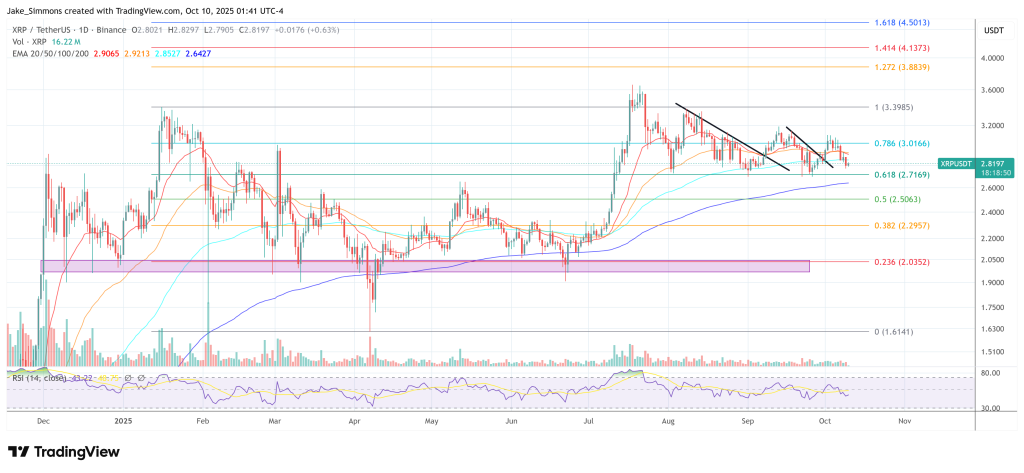Ripple Execs Meet Luxembourg’s Finance Minister: A Deal In The Making?
Ripple’s top legal and European policy leads met with Luxembourg’s Finance Minister Gilles Roth to discuss the company’s push to obtain a license in the Grand Duchy—a move that would position the US fintech to passport regulated digital-asset services across the European Union under MiCA.
What Ripple’s Luxembourg Meeting Reveals
After the meeting, Roth struck a decidedly welcoming tone, writing via X: “Great meeting with Ripple, as they advance toward securing their license to operate in Luxembourg. We discussed their ambitions in Europe and Luxembourg, and I reaffirmed our commitment to digital innovation.”
Stuart Alderoty, Ripple’s chief legal officer, framed Luxembourg as emblematic of the EU’s first-mover regulatory posture: “The EU led in creating comprehensive rules for digital assets—and nations like Luxembourg are leaning in,” he said, thanking Roth and his team for a “great meeting last week,” and noting that Ripple is “excited about our future in Luxembourg and the EU.” The comments came as the company continues to align its product and compliance stack with Europe’s Markets in Crypto-Assets regulation, which became applicable in phases this year.
Cassie Craddock, Ripple’s managing director for the UK and Europe, underscored the local opportunity created by MiCA’s roll-out: “With MiCA now rolled out across the EU, nations like Luxembourg have the opportunity to take a global lead when it comes to developing their local digital assets industry,” she wrote, calling the discussion with Roth “extremely positive” and concluding that “Luxembourg really understands the opportunity ahead,” while emphasizing Ripple “stand[s] ready to support Luxembourg’s efforts as it establishes itself at the forefront of the industry.”
Luxembourg’s appeal is straightforward: it is a leading domicile for investment funds and market infrastructure in the EU, home to a sophisticated regulator (the CSSF) and a deep bench of financial-services talent. Under MiCA, a crypto-asset service provider (CASP) license obtained in one member state can be passported across the bloc, making the choice of supervisory home strategically significant.
Although neither Ripple nor the Finance Ministry disclosed which precise permissions are being pursued, Roth’s characterization—“advanc[ing] toward securing their license”—suggests the firm is beyond exploratory talks and into the substantive engagement regulators require for authorization.
The meeting also aligns with Ripple’s broader European push after years of US regulatory friction, where establishing a clear, MiCA-compliant footprint could de-risk client adoption of its enterprise payments and digital-asset solutions across the single market.
The timing of the outreach is notable. Luxembourg has been signaling a readiness to integrate digital assets into mainstream finance. In a separate development yesterday, the country’s Intergenerational Sovereign Wealth Fund (FSIL) became the first in the Eurozone to disclose a direct sovereign allocation to spot Bitcoin ETFs—1% of its roughly $730 million portfolio—an investment Finance Minister Roth announced in the presentation of the 2026 budget. The decision followed a 2025 policy update allowing up to 15% in alternatives, including digital assets, and was structured via regulated ETF vehicles.
At press time, XRP traded at $2.8197.







